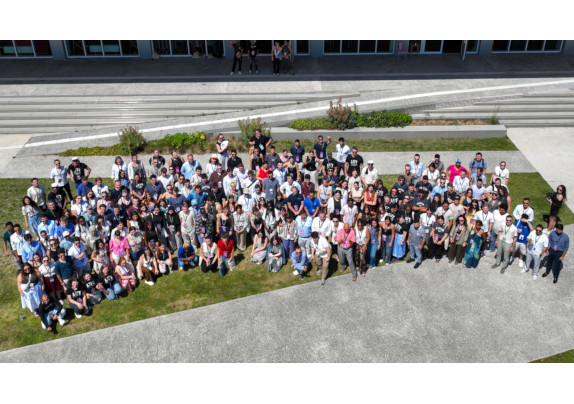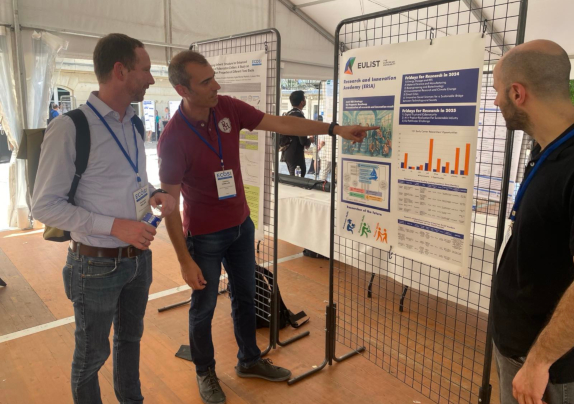Course on ‘PROJECT MANAGEMENT: PMI of PMBOOK and Scrum’
Course on ‘PROJECT MANAGEMENT: PMI of PMBOOK and Scrum’ organised by the URJC
14, 17 and 18 October
Online format
The Rey Juan Carlos University (URJC) as a partner of EULiST invites two members of the EULiST Alliance per university to participate in the three-day (16 hours) online PMI course. This training is of great interest to project managers as PMBOK stands for Project Management Body of Knowledge and is a process-based project management methodology (actually a framework, but more on that later) developed by the Project Management Institute (PMI). It is a collection of project management processes, best practices, terminologies, guidelines and tools that are accepted as standard within project management and is the most popular certification.
The course consists of 30% theory, explaining the principles, processes, best practices, tools and techniques. The remaining 70% will be practical, applied to real projects by teams of 3 or 4 participants. In this way, the course objectives will be covered:
- Master basic project management skills, concepts and techniques.
- Link project goals and objectives to clear and compelling stakeholder needs.
- Apply different planning methods (schedules, dashboards, curves, …).
- Set realistic and measurable objectives and ensure positive results.
- Define and estimate project deliverables or MVPs, costs and schedules using simple and proven participative techniques.
- Set up a reliable project monitoring and tracking system.
OTHER INFORMATION:
The course is free of charge and takes place online according to the following schedule:
- Monday 14/10: from 9:00 to 13:00 and from 15:00 to 17:00
- Thursday 17/10: from 9:00 to 13:00 and from 15:00 to 17:00
- Friday 18/10: from 9:00 to 13:00
Please contact your local EULiST coordinator before 3 October if you are interested in participating.
PROGRAM:
INTRODUCTION TO PROJECT MANAGEMENT
- What is a project?
- Main fails and problems in project management.
- Triangle: Scope, Schedule, Costs
- Generic Project life cycle
- Agile, Waterfall and Hybrid approaches
- Project life cycle at URJC
- The roles and responsibilities: PM, PO, SM, DT
PROJECT INITIATION
- Business Case – Canvas model – metrics and KPIs.
- Stakeholders and main roles.
- Collecting requirements histories.
- Formation of the project team.
PROJECT PLANNING
- Planning ceremonies in agile and waterfall approaches.
- Scope Planning: Work Breakdown Structure (WBS/WBS) vs User Stories (backlog).
- Schedule Planning: Schedule and Scrum / Kanban Boards.
- Minimum Viable Product (MVP).
- Planning of human and material resources.
- Cost estimates: effort hours, S curves, burn curves, story points.
- Risk Planning: identification, preventive actions, and contingency.
- Quality Planning.
- Communication Planning.
- Integration
PROJECT EXECUTION / DEVELOPMENT AND CONTROL
- Coordination and improvement ceremonies in agile approaches.
- Daily/weekly follow-up meetings.
- Monthly reporting meetings / demonstrations.
- Monitoring and control activities in traditional methodologies.
- Use of S curves and burning curves to control the project.
- Other simple control metrics.
- Continuous replanning, deviations, and corrective actions.
- Change Management in agile and waterfall.
- Knowledge management throughout the project.
- Exchange of information and lessons learned, sprint retrospectives.
PROJECT CLOSURE
- Closing ceremonies in agile and waterfall approaches.
- Challenges during the closure.
- Final acceptance by the customer / users.
- Handover to operation / production.
- Project retrospective, lessons learned and process improvements.







